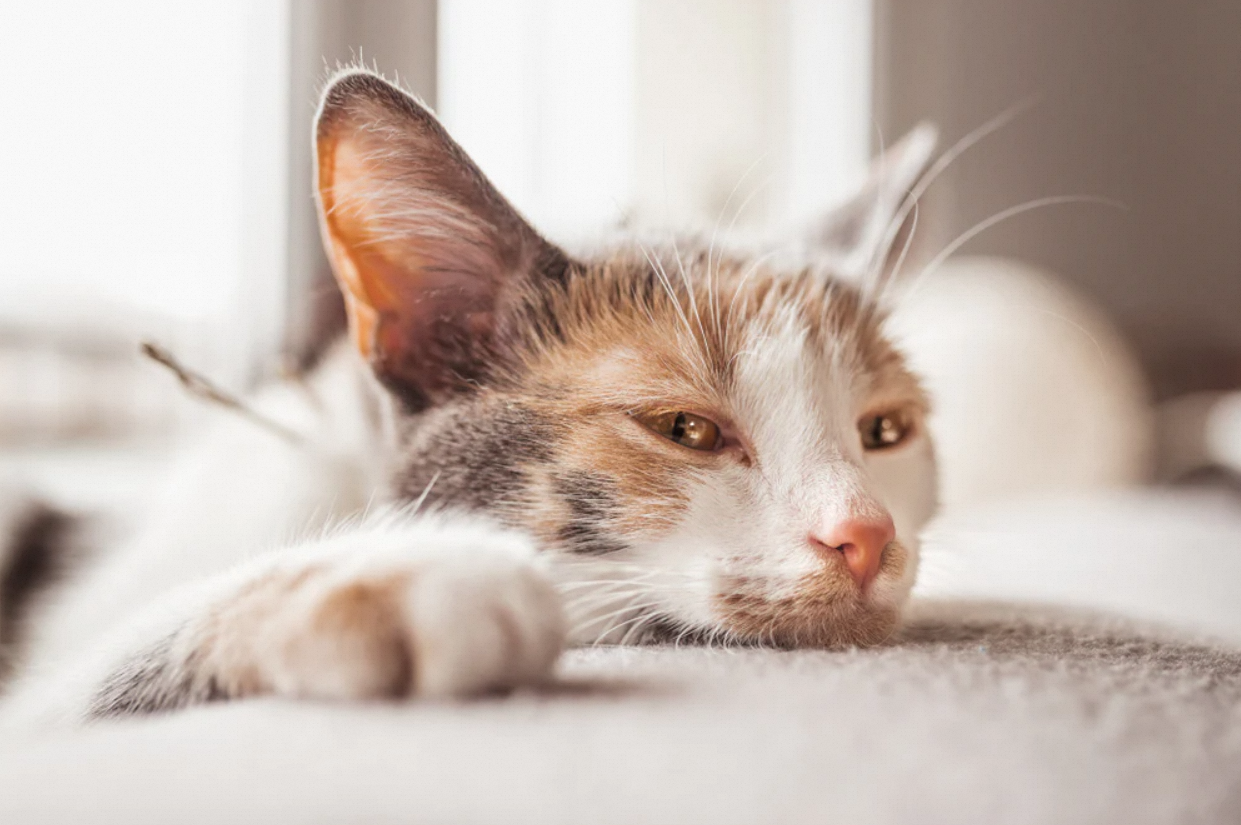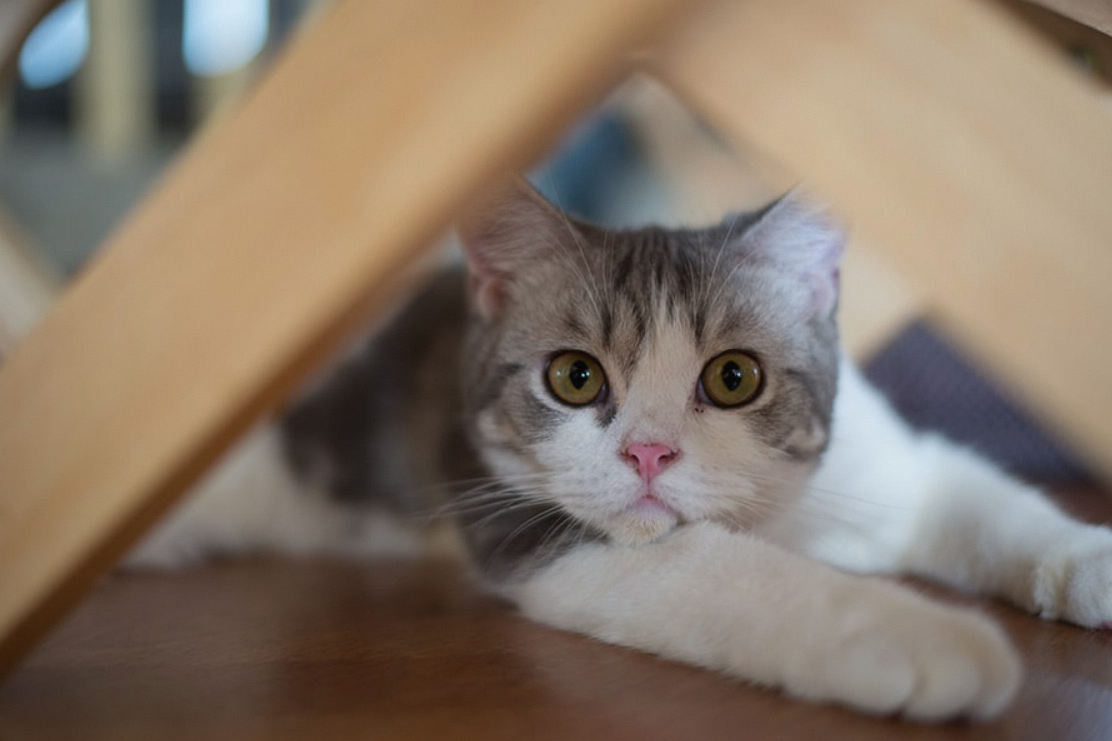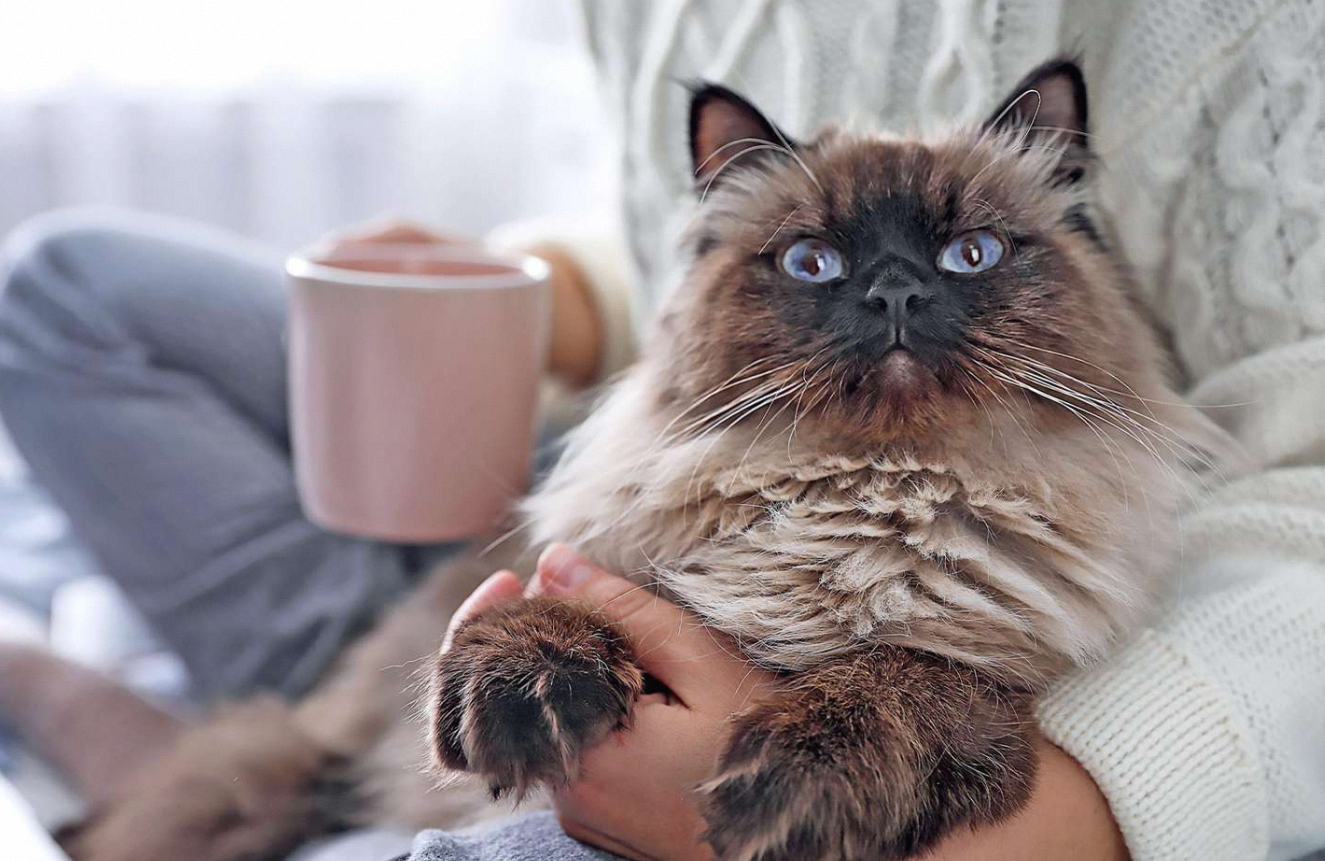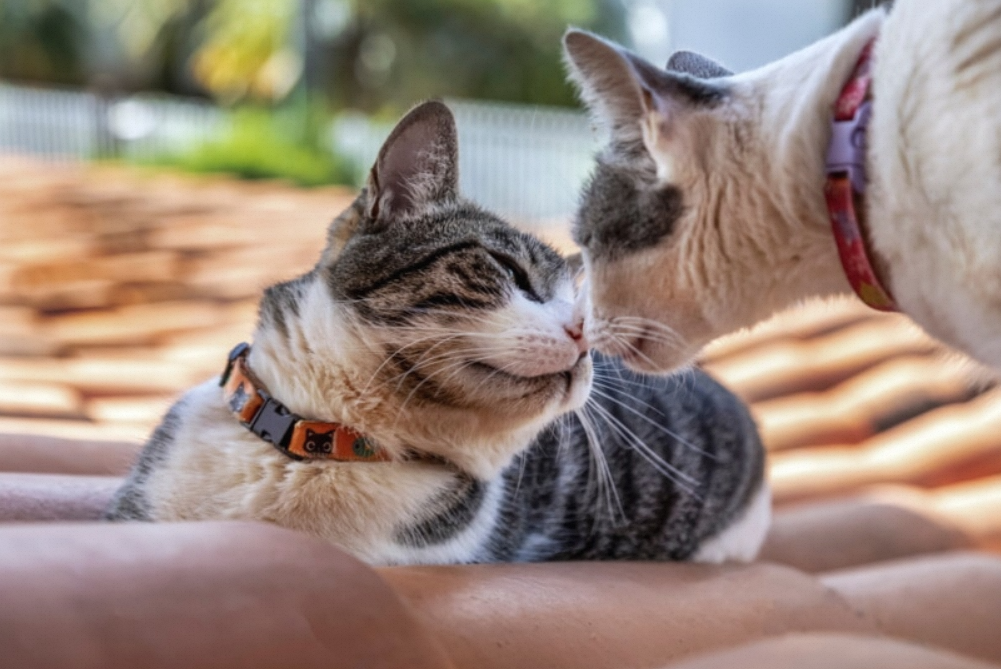Cats are one of the most popular pets, and their lively and lovable personalities make them family treasures. However, just like other animals, cats can get sick. Therefore, it is important to understand the symptoms of cat illness so that you can take timely measures to protect your cat’s health. Symptoms of a sick cat can be many and include changes in appearance, behavior, and physiology as well as other signs to consider. Let me tell you in detail the obvious symptoms of a sick cat. Even a novice can tell that is my cat sick.
In This Article
Physical Signs of Illness
Changes in appetite and weight
I believe the owner knows how much the cat eats every day. If the cat’s appetite decreases one day, is it weird to find that there is still a lot of cat food left in the bowl after the cat food has been eaten? In order to eliminate the influence of the external environment, the owner should feed the cat’s favorite snacks. If the cat still has no appetite, it is likely that is my cat sick. Just like when a person is sick, he has no appetite for anything.
Increased appetite is a clear warning that your cat needs to be taken to the vet. Thyroid hormones, which cause appetite, also speed up metabolism and strain the organs. Sudden weight loss or even persistent weight loss can be a sign of illness. If you’re unsure, weigh your cat at home once a week. If your cat continues to lose weight, talk to your doctor.
 For some diseases, such as abdominal cancer or heart disease, the cat’s weight may not change, but his physical condition continues to get worse. You can feel his ribs and spine more easily because there is less fat layer there, but your cat’s belly will look rounder or swollen.
For some diseases, such as abdominal cancer or heart disease, the cat’s weight may not change, but his physical condition continues to get worse. You can feel his ribs and spine more easily because there is less fat layer there, but your cat’s belly will look rounder or swollen.
Digestive problems
If your cat is vomiting, especially several times a day, and seems to be feeling unwell, it is time to pay attention. If your cat refuses to drink water or vomits after drinking water, he or she needs to see a doctor.Many cats like to vomit, and they may vomit from time to time (once a week or two weeks) to eliminate toxins. If your cat is active, responsive, behaving normally, and eating normally, there is nothing to worry about.
As a poop scooper, healthy cats have basically stable urination frequency and volume. Therefore, it is easy to tell whether is my cat sick by watching its defecation. If the cat does not defecate (urinate or defecate) for a day or two and needs medical attention, the cat may suffer from kidney disease; if the stool appears dry, hard and sparse, and there is a small amount of mucus, it is likely to be constipation or chronic gastroenteritis; if the stool appears green Stool needs to be checked for parasitic infection.
Male cats have difficulty urinating, mostly due to urinary system diseases. These signs may include frequent trips to the potty or even squatting outside the potty. The cat may squat for several minutes, or it may keep getting up and changing places to continue squatting. If possible, check to see if your cat urinates (is the area where it crouched wet or dry?) and if it does, is it bloody?
Respiratory problems
Determine if you have breathing problems. If your cat’s breathing is light and shallow, or if your cat’s mouth is open but he’s not breathing hard, he needs to see a doctor. You should also try to judge how hard your cat is breathing. If you find that your cat’s stomach muscles are rising and falling in order to breathe, you need to see a doctor.
Skin and coat abnormalities
Your cat’s skin should be clean and free of rashes or dermatitis. If you notice that your cat is losing hair, has red, swollen, scratchy, or itchy skin, they may have a skin disease or infection.
Sick cats often don’t have the energy to groom themselves. What was once a shiny and carefully groomed coat can become rough, dull, and messy. Of course, stress can cause shedding and changes in grooming habits, but it could also be that your cat is sick. Please consult your veterinarian.
Behavioral and Psychological Signs of Illness
Changes in daily activity levels
Drowsiness and listlessness may be caused by fever, difficulty breathing, or pain. Pay attention to the difference between sleeping more – a sick cat may be awake but not have the energy to interact with others or participate in daily activities. If your cat is weak and breathing rapidly, seek medical attention.
If your cat suddenly becomes inactive, sluggish, or hides in a corner, it may be because they are feeling uncomfortable or sick. Pay attention to your cat’s behavior. If you notice obvious changes, such as becoming unusually excited, irritable, or unusually quiet, this may be a sign of illness.
Physical discomfort or health problems may be one of the reasons why your cat has a bad temper. Pain, digestive problems, urinary problems, or other illnesses may make your cat uncomfortable, irritable, or antisocial.
Changes in dumpster habits
When a cat is in heat, it will send out signals through urine. When cats suffer from certain diseases, such as constipation and lower urinary tract diseases, and have pain during excretion, they will also have a bad memory of the litter box and hate the litter box. Therefore, it will choose to excrete in a place it finds comfortable.
Other Signs to Consider
Eye and Head Problems
Check your eyes (and nose) for excessive discharge. If your cat is constantly crying, it could be due to an allergy or a sinus infection. If excessive secretions are accompanied by excessive water intake/urination, lethargy, and dull coat color, you need to see a doctor, as kidney failure is possible.Also check whether the pupils are dilated. Certain diseases can cause a cat’s pupils to continuously dilate. If you find that your cat’s pupils are constantly dilated, you need to seek medical attention immediately.
Pay attention to whether the cat’s head is tilted, dizzy or disoriented. These may be symptoms of a neurological disorder or ear infection. If this occurs, you need to take your cat to the doctor immediately. If you find that your cat, who originally had flexible limbs and agile movements, has become clumsy or has its head tilted to one side, something is probably wrong. It may be a symptom of stroke, high blood pressure, or even a brain tumor, and you need to see a doctor.
Dental problems
Especially changes in the color of your gums. If you notice that your cat’s gums, especially those that were originally black, are turning white, your cat may be sick. You should also smell your cat’s breath. If there is a strange smell that has nothing to do with the food you are feeding, there is probably something wrong.
Changes in drinking habits
Be wary of changes in your cat’s drinking habits. How much water your cat drinks depends on whether it’s eating wet food (where it’s rarely seen drinking water) or dry food (where it drinks water at a normal frequency). Cats can be thirsty for many reasons, such as certain infections, kidney disease, hyperthyroidism, and diabetes. If your cat is constantly thirsty, he needs to see a veterinarian.
 Of course, the above are just some common symptoms of cat illness. The specific situation needs to be comprehensively judged based on the characteristics and behavioral habits of the individual cat.In daily life, we can also prevent and reduce the risk of cats getting sick through regular physical examinations and maintaining good living habits.
Of course, the above are just some common symptoms of cat illness. The specific situation needs to be comprehensively judged based on the characteristics and behavioral habits of the individual cat.In daily life, we can also prevent and reduce the risk of cats getting sick through regular physical examinations and maintaining good living habits.
In short, it is very important to understand the common symptoms of cat illness. They can help us detect problems early and take timely action. If you find that your cat has abnormal symptoms, be sure to take it to the veterinarian for professional help and treatment in time. By paying attention to our cats’ physical health, we will be able to create a happy, healthy life for them.
